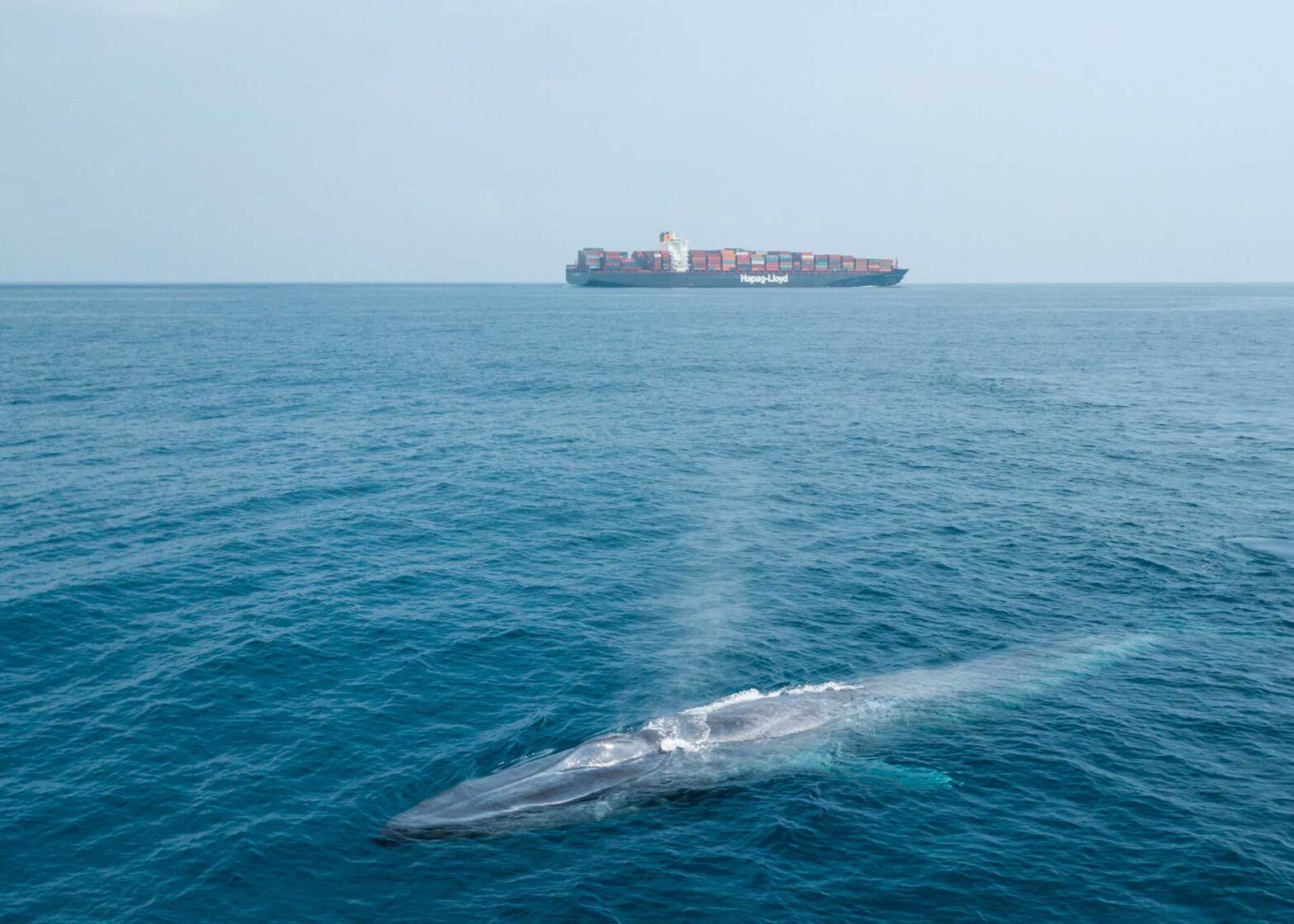Hope for blue whales off Sri Lanka
A unique population of blue whales off Sri Lanka is threatened with extinction due to ship strikes. There is an urgent need to relocate shipping routes to prevent ships colliding with whales.
In the Indian Ocean off the southern tip of Sri Lanka rich fishing grounds ensure that a small population of the endangered blue whale thrives here all year round. Blue whales can reach up to 33 metres length and weigh 200 tonnes, making them the largest animals on the planet. Unlike all other blue whales, this population apparently does not migrate seasonally. They also differ by vocalization and behaviour from other populations.
Intense vessel traffic right through the «living room» of blue whales
The blue whale population off Sri Lanka is classified as endangered by the IUCN. The habitat has been declared as an Important Marine Mammal Area (IMMA). The problem is that the official Traffic Separation Scheme (TSS) directs international shipping traffic directly through this important home for blue whales.
This poses a high risk to the whales. Blue whales with propeller marks or rammed by the hull of a vessel have been found dead along the coast of Sri Lanka. But such strandings are only the tip of the iceberg. Scientists estimate that up to 20 times more whales die off the coast and remain undetected by just sinking to the seabed.
In addition, international merchant vessel traffic on the current route also poses a threat to the small boats of a thriving whale watching industry as well as from local fishermen.
A small change in the route makes a big difference for the whales
There is a simple solution to prevent ship strikes in this region: relocating the shipping route just 15 nautical miles further south would reduce the risk of a collision between a ship and a blue whale by up to 95%. This is why the World Shipping Council (WSC), major shipping companies and associations, but also the International Whaling Commission (IWC) are calling on the government of Sri Lanka to propose relocating the shipping lane by the IMO to protect these endangered whales and increase the safety of shipping. So far, however, the calls to the Sri Lankan government have gone unheeded. About a quarter of the shipping traffic already takes the southern alternative route.
Together with the International Fund for Animal Welfare (IFAW) and the Great Whale Conservancy, OceanCare is actively campaigning for an official relocation of this shipping route.
First successes saving blue whale lives
In June 2022, the German Ship Owners’ Association (VDR) recommended to their 150 members – representing a significant size of the global cargo fleet – to relocate their shipping route to reduce the risk of collisions with whales.
In September 2022, the world’s largest shipping company, the Mediterranean Shipping Company (MSC), announced their decision to actively relocate its shipping routes in accordance with the scientific recommendations.
OceanCare hopes that other shipping companies and shipping associations will follow suit and put re-routing into practice as well and that the Sri Lankan government will take action to impose change via the IMO.
